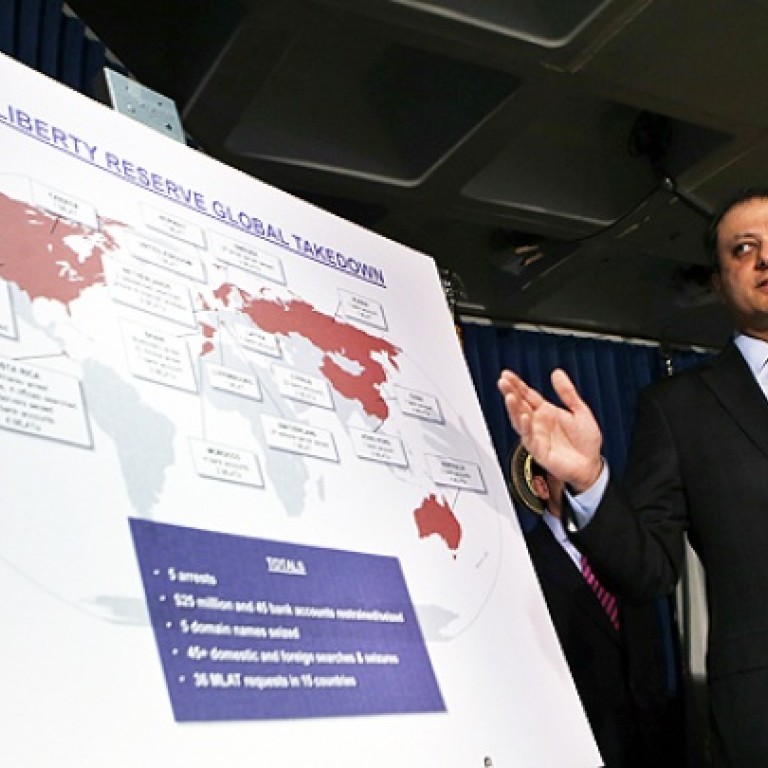
Liberty Reserve founder among seven charged over US$6b laundering scam
Founder of Liberty Reserve system favoured by cybercriminals among suspects indicted in New York after inquiry spanning 17 countries
The founder of an online currency transfer business was indicted in the United States along with six other people in a US$6 billion money-laundering scheme described as "staggering" in its scope, authorities said yesterday.

The inquiry involved law enforcement in 17 countries and "is believed to be the largest money laundering prosecution in history", the prosecutor's office said.
Authorities say the network processed at least 55 million illegal transactions worldwide for one million users, including 200,000 in the US.
The scope of the defendants' unlawful conduct is staggering
"The scope of the defendants' unlawful conduct is staggering," said an indictment unsealed in federal court in Manhattan.
Concern had been building on underground internet forums since Liberty Reserve went offline last week. In a statement, Costa Rica police confirmed that Budovsky had been arrested in Spain on money-laundering charges and that several premises linked to his company had been raided. A notice pasted across Liberty Reserve's website said the domain "has been seized by the United States Global Illicit Financial Team".
Liberty Reserve's demise is likely to send a sharp shock across the internet. Aditya Sood, a computer science doctoral candidate at Michigan State University who has studied the underground economy, called it one the most popular currencies for cybercriminals.
Liberty Reserve operates as a no-questions-asked alternative to the global banking system, with little more than a valid e-mail needed to open an account and move money across borders.
"You don't need to provide your full details, or personal information, or things like that," Sood said. "There's no way to trace an account. That's the beauty of the system."
People using Liberty Reserve rely in part on offshore currency centres - generally set up in places beyond the reach of US or European law enforcement - that broker transactions moving cash in and out of the mainstream financial system. Like other cybercurrencies, Liberty Reserve has many legitimate users, but the promise of untraceable transactions has long made it attractive to scammers.
Sood said despite prominent disclaimers warning against money laundering, the way that Liberty Reserve was set up meant currency centres typically had little in the way of serious oversight.
"Cybercriminals don't provide their real credentials", leaving brokers in the dark about who was sending what where, Sood said. "They have no idea where the money is coming from or where the money is going," he said. "That's how they designed the model."
Liberty Reserve appears to have played an key role in laundering the proceeds from the recent theft of some US$45 million from two Middle Eastern banks, legal documents made public by US authorities this month said. The complaint against one of the Dominican Republic gang members allegedly involved in the theft states that thousands of dollars' worth of stolen cash was deposited into two Liberty Reserve accounts via currency centres in Siberia and Singapore.
The Costa Rica police said they raided three homes and five businesses linked to Liberty Reserve, and seized papers and digital documents that will be turned over to US authorities.
Budovsky, who became a Costa Rican national after giving up his US citizenship, was sentenced in 2007 to five years' probation after pleading guilty in New York to charges he operated an illegal financial services.
